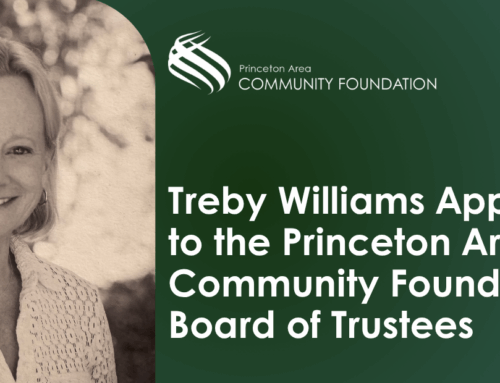We’re not the first to talk about this. The Stanford Social Innovation Review, Chronicle of Philanthropy, and all manner of publications in our field have been sounding off at length for several years. And we’ll certainly not be the last, as it will take many more years to reverse this deep-seated trend. But, as a leader in Mercer County, we say:
We see local nonprofits starved of the essential ingredients that build strong
organizations with great leaders. Without leadership development, we worry about
the future of our sector.
We strongly encourage nonprofit trustees and donors to do something about this. Here’s the problem, in a nutshell:
- Not-for-profit is just a tax status. It doesn’t mean that organizations cannot generate surpluses to fuel future growth. How else could that growth ever happen?
- Nonprofits are often encouraged to “do more with less.” Nonprofits are generally lean to begin with. They can only do less with less. The need for human services, food, healthcare, and other kinds of help has risen in the last few years. Nonprofits need more to meet growing needs efficiently and effectively.
- Talented staff and visionary leaders make for successful organizations. Failing to invest in staff invites the best and brightest to go elsewhere and leaves organizations with outdated skills and burned-out workers.
What can donors and trustees do?
- Make unrestricted gifts to the organizations you care about. Let them decide how to best use your dollars. Remember, nonprofits must invest in infrastructure, professional development, staff salaries, and paper towels, just like every other kind of corporation.
- Call the Executive Director and ask if staff have professional development money. If not, offer to donate some. Say that the organization’s longevity is important to you. Sometimes the habit of parsimony clouds our vision, and we need someone to jolt us out of it through just such a conversation.
- Talk about this issue of investing in our nonprofit sector – at the board table, around the dining table, and everywhere in between. Start this conversation with everyone you know, including your fellow trustees.
The next generation of nonprofit leaders will indeed have bigger challenges to address. They must be capable managers, extraordinary fundraisers, conversant with changing standards in nonprofit finances and accounting, and eloquent champions of their causes. They will not exist in the future if we don’t work to develop and support them today.





